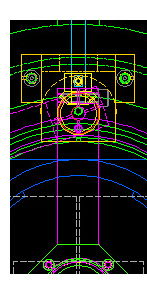|
|
| AST 351 · Astronomical Instrumentation |
 1
2
3
4
5
1
2
3
4
5

|
2. How the Course Works
2.1. Philosophy
Astronomy 351 is a team-taught course where you are part of the team. There will be only occassional classes
in a more conventional seminar/lecture format. Most of the rest of the time, the class will look more like an
apprenticeship, an engineering project course, a physics lab course, or a bunch of curious kids let loose in a room
full of great toys. The learning in this course is centered around the activities of teams of 4-5 students.
 We have
structured the activities to emphasize collaborative learning. As future teachers, researchers, and technical managers,
you will need to know how to help colleagues, coworkers, employees, and students master complex material.
You will start that process here. Your participation as a teacher/trainer in this course is as important as your
role as student/trainee. You will be encouraged to work together on almost everything. Although there will be
some background reading to do, most of the learning will take place in the form of activities. Compared to the
typical course, this course will involve much more "class" time and somewhat less time outside of class.
We encourage people to make themselves available to their peers by spending some extra time in the lab.
We have
structured the activities to emphasize collaborative learning. As future teachers, researchers, and technical managers,
you will need to know how to help colleagues, coworkers, employees, and students master complex material.
You will start that process here. Your participation as a teacher/trainer in this course is as important as your
role as student/trainee. You will be encouraged to work together on almost everything. Although there will be
some background reading to do, most of the learning will take place in the form of activities. Compared to the
typical course, this course will involve much more "class" time and somewhat less time outside of class.
We encourage people to make themselves available to their peers by spending some extra time in the lab.
As professor for this course, I serve four purposes: (1) As facilitator. I am here to make sure
you have all resources necessary to do the activities and learn the material. This includes making sure the
software works, the hardware is there, the materials are clear etc. (2) As part of the coaching staff. Along with
the other members of the Department and the Observatory who are making themselves available, I am (in principle) a
knowledge resource. You can come to me for advice, for direction to additional people or material, or for help
when you are flat-out stuck. (3) As referee. When there are conflicts between or within teams and groups over
resources or (heaven forfend!) personalities that cannot be resolved satisfactorily without help, I am there to
deal with them. (4) As evaluator. This is after all a course. You will get a grade (see below). I also take
seriously the part of this role that involves evaluating the course materials and organization, as well as the
performance of the outside instructors and even ouselves. Y'all need to contribute to this effort by taking your
own evaluating role seriously.
2.2 Texts
Bulding Scientific Apparatus by Moore et al. (2nd edition)
The Art of Electronics by Horowitz and Hill (2nd ed.)
Both of these are great references as well as textbooks. If you have any inkling at all that you may be around
instrumentation in the future, hang onto these books at the end of the semester!
|
|
|
|

 We have
structured the activities to emphasize collaborative learning. As future teachers, researchers, and technical managers,
you will need to know how to help colleagues, coworkers, employees, and students master complex material.
You will start that process here. Your participation as a teacher/trainer in this course is as important as your
role as student/trainee. You will be encouraged to work together on almost everything. Although there will be
some background reading to do, most of the learning will take place in the form of activities. Compared to the
typical course, this course will involve much more "class" time and somewhat less time outside of class.
We encourage people to make themselves available to their peers by spending some extra time in the lab.
We have
structured the activities to emphasize collaborative learning. As future teachers, researchers, and technical managers,
you will need to know how to help colleagues, coworkers, employees, and students master complex material.
You will start that process here. Your participation as a teacher/trainer in this course is as important as your
role as student/trainee. You will be encouraged to work together on almost everything. Although there will be
some background reading to do, most of the learning will take place in the form of activities. Compared to the
typical course, this course will involve much more "class" time and somewhat less time outside of class.
We encourage people to make themselves available to their peers by spending some extra time in the lab.